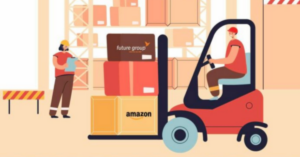SMBs are preparing for long-term changes as they embrace digitisation
Small and Medium Businesses are continuing to push forward after embattling unforeseen circumstances brought up by the pandemic. While a number of SMBs were forced to shut shop due to diminished revenues, there are many others who are taking the pandemic as a lesson and revamping their business model in ways never seen before.
Very early in the pandemic, SMBs found communities and government initiatives as a ray of hope for their survival. However, as the COVID-19 pandemic continued, these SMBs prepared themselves for the future by prioritising customer and employee engagement. They are also embracing the digital-first world with fast adoption of digitisation and rapid investment in technology.
Has the Dutch workforce mastered all digital skills? Find out
The fifth edition of the “Small and Medium Business Trends” report shows that SMBs leaders are convinced that the change in business strategy will help them long-term. In a way, the pandemic has been a blessing in disguise that forced SMBs to rejig their operations, become more efficient, and be prepared for any challenge.
SMBs gear up for long-term changes
The “Small and Medium Business Trends” report from Salesforce shows that SMBs are already able to foresee the long-term changes driven by the pandemic. The insights from over 2,500 small and medium business owners and leaders worldwide reveals that SMBs find themselves more efficient than before. They see adapting to new business models and changing business environments as the reason for this improved efficiency.
The report further notes that three quarters or 75 per cent of SMB leaders think that the changes made by them in response to the pandemic will benefit them in the future. This number grows to 79 per cent among growing SMBS and is around 71 per cent among stagnant or declining SMBs. Among medium businesses, 80 per cent of the leaders say that these operational shifts will be beneficial long-term but the number drops to 71 per cent among small businesses.
A total of 79 per cent of SMBs plan to offer contactless services permanently and it is true for SMBs in consumer goods, retails, and technology space. The survey shows that 96 per cent of SMBs in consumer goods industry plan to continue offering contactless services after the pandemic while 91 per cent SMBs in retail and technology confirm continuing contactless services.
Among financial services and manufacturing SMBs, the majority stood at 86 per cent and 78 per cent respectively. In travel and hospitality, healthcare, architecture, engineering, construction and real estate, and professional and business services, the continuation of contactless services stands at 78 per cent, 76 per cent, 69 per cent, and 68 per cent, respectively.
Preparing for future crisis
The fifth edition of the “Small and Medium Business Trends” report from Salesforce has shown clearly that SMBs are better prepared for future crises than they were when COVID-19 struck. The report shows that 70 per cent of SMBs have created scenario plans to prepare for future crises. This is a change from August, 2020, when only 30 per cent of SMBs said they were scenario planning.
Among growing SMBs, a total of 77 per cent have such scenario plans while that number drops to 65 per cent among stagnant/declining SMBs. The planning and HR practices of SMBs have completely altered because of the pandemic. The SMBs are now working to remain operational in future crises.
To stay operational, SMBs are also adopting the new work-from-anywhere model. In the long-term, the report states that two in five SMBs “plan to have employees work remotely at least half time, but a similar proportion will have most employees work in-person.”
This long-term plan for working arrangement also varies across industries with travel and hospitality, manufacturing, and healthcare likely to have most employees working in-person. The professional and business services, technology, and retail industry are likely to embrace remote work.
Market knowledge is the key character trait needed to succeed
Small and medium businesses were hit hard by COVID-19 pandemic and a report from McKinsey in August, 2020, shows that 70 per cent of European SMBs saw their revenue decline. With SMBs making up around 90 per cent of businesses worldwide and employing more than half of the global workforce, their survival and growth has a direct impact on the broader society and community.
Alongside scenario planning, SMBs are also taking stock of the skills or characteristics required to run a successful business over next year. The top three characteristics, according to the respondents in SMB space, is market knowledge, problem-solving skills, flexibility and agility.
These three characteristics are followed by an innovative mindset and good leadership skills. The survey clearly shows that SMB leaders view perseverance and adaptability as an important character trait to navigate the digital world and prepare themselves for all the challenges that lie ahead.
Catch our interview with Paul Down, Head of Sales at Intigriti.










